Modern weapons help bring new viciousness to PNG tribal warfare
Papua New Guinea’s Highlands are racked by violence as tribal warfare resurges horrifically.
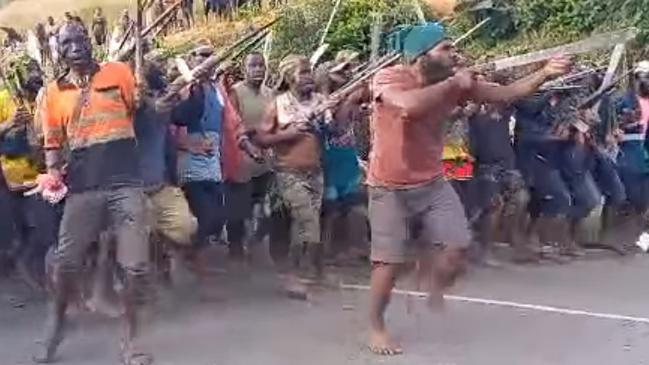
Matildas heroine Mary Fowler’s mum is a Papua New Guinean. Will Genia is one of many rugby greats – both codes – who also comes from PNG. As a sporting powerhouse, the nation is overflowing with energy.
Now the world of power politics is beating a path to PNG’s door as global leaders fly to Port Moresby.
But the national capital is not yet linked with any other major centre by road, and in the Highlands heartland especially, hundreds of kilometres away, tribal warfare is resurging horrifically, underlining PNG’s huge residual challenges that are largely disconnected from the geopolitics that preoccupy most onlookers.
This year, visitors to PNG have included the presidents of India, Indonesia and France, Australia’s Prime Minister, and the US Secretary of State and Defence Secretary. China’s Foreign Minister Wang Yi came last year.
The Economist magazine declared recently that PNG had again become “a geopolitical prize”, as it was 81 years ago when Japan invaded, halted only by Australia’s desperate defence along the Kokoda Track.
Today the tussling is between the new East Asian power – the People’s Republic of China – and Australia and its ally, the US, and other partners.
Since becoming independent from Australia 48 years ago, PNG has used as its international affairs slogan “Friend to All, Enemy to None”. It is an equal-opportunity recipient of loans and aid, and target of influence.
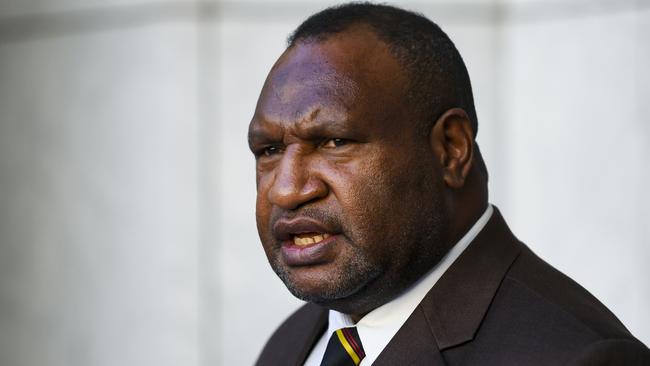
James Marape, Prime Minister for more than four years and finance minister for seven years before that, says he aims for PNG to become “the richest black Christian nation” in the world.
There’s still a long way to go in both wealth and in faith – underlined by the deaths this year of 150 people or more, including children, from waves of vicious warfare.
In former generations, tribal fights often were conducted in a ritualistic, almost chivalric, way, with honour declared satisfied with one or two opponents being injured by an arrow or spear wound. Like many who have lived in PNG, I encountered a number of such skirmishes while driving in the Highlands and as a non-combatant was treated courteously, including being asked to drive a platoon of war-painted tribesmen to the front line “long wanem, mipela let long pait” – “because we’re late to the fight”. Often, such disputes hinged off ancient land feuds.
Now there’s a new viciousness, thanks in part to the widespread use of both modern and homemade guns, and also to the manipulation of such violence for more nakedly political ends, including through the deployment of mercenaries paid per kill.
Don Polye, a Southern Cross University graduate who has been PNG treasurer and foreign minister, and is MP for Kandep in Enga Province, told the PNG Post-Courier “drones are being used to locate enemies, mercenaries are being hired, and young men are being slaughtered mercilessly. We are losing a generation of educated Engans.”
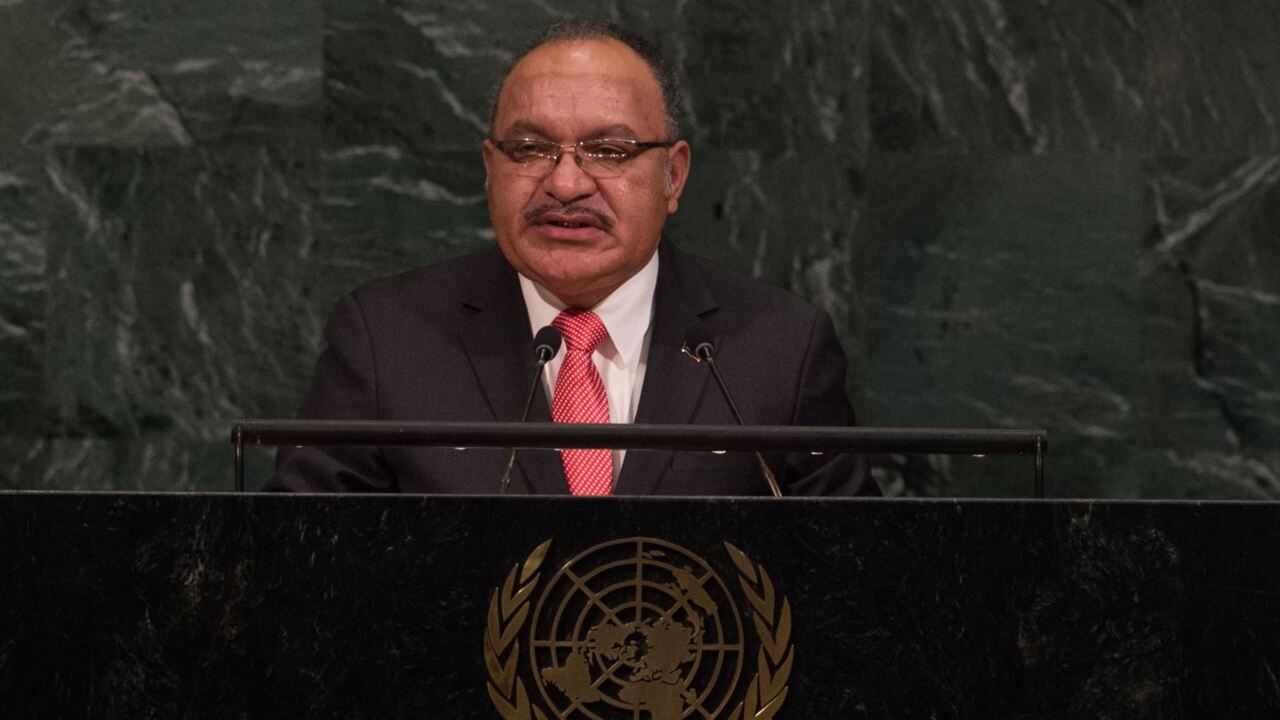
A few days ago in Enga, David Joseph and his three-year-old daughter, Macklyn, were killed when the public minibus in which they were travelling to sell a sack of kaukau (sweet potatoes) they had grown was peppered with bullets at a fighters’ roadblock.
Engan police commander Chief Inspector George Kakas said: “Gunmen can demand up to 1000 kina ($424) per day or, in lieu, women and livestock and other properties.”
Leadership – its style, its aims, sometimes its lack – has long been an issue. A transactional “big man” PNG political culture has developed, within the country’s lively parliamentary democracy, that is largely bereft of policy debate and is focused on personalities and their success at deal-making and at diverting government funds to favoured groups.
After 2002, when voters removed about 80 per cent of sitting members, a limited preferential voting system was introduced, stabilising the turnover so that at the election in July last year only one-third of members lost their seats. All PNG governments have been coalitions.
Last year only two women were elected out of 118 MPs; in the previous election none. Many believe more female leaders would transform PNG positively, but voters and traditional cultures resist.
In some areas of PNG, elections become proxy tribal and “big man” contests. The current wave of fights was sparked substantially by last year’s election campaigns, starting in Hela Province, the home of Marape, and spreading to the adjacent mountainous province of Enga.
National police commissioner David Manning said: “We all know the tribesmen going out with guns and bush knives are being manipulated by politicians at all levels”, whom he described as “puppeteers” who “wear a suit and tie by day, and abuse cultural beliefs and manipulate tribes by night”. And in contrast, some MPs are unable to visit their own electorates for fear of violent constituents.
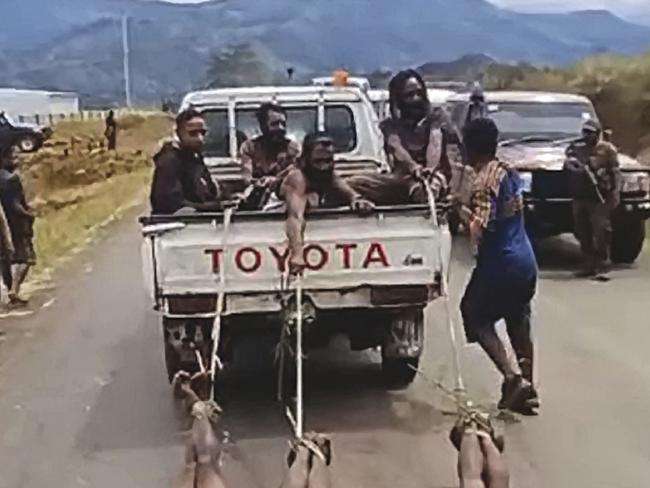
Manning lamented the lack of a strategy to combine the tools of “thousands of years of traditional ways of dealing with conflict” and of modern law enforcement.
PNG lies only 5km away from Australia’s nearest inhabited island, Boigu – canoe-paddling distance. Yet in living standards, and despite PNG’s resource riches and agriculture and tourism potential, the two remain worlds apart.
In the latest UN Human Development Index, PNG is placed 156th of 191 countries, Australia fifth. Australia’s life expectancy is almost 20 years longer, most children are at school more than twice as long, and average earnings are more than 12 times as much.
Many Papua New Guineans feel that opportunities to build a better life for their families are again passing them by, as occurred with the previous generation that had held out such high hopes from independence.
Resource operations – chiefly in copper, gold, oil and gas – have provided substantial national income in recent decades, considerably more than aid revenue. But governments have been unable to help build sustainable sectors on the back of that core industry.
Aid providers also have disappointed. Five years ago during an Asia-Pacific Economic Co-operation leaders’ summit in Port Moresby, Australian prime minister Scott Morrison led, with US, Japanese and New Zealand partners, a plan to provide power to 70 per cent of PNG’s households – up from 13 per cent – by 2030. Little progress has been made.
And despite Canberra’s own enhanced efforts, they remain short of a co-ordinated all-of-Australia embrace, including businesses, churches, sporting organisations, schools and universities, that might best close the gap between the two peoples. There is a sense among Papua New Guineans that its governments have consecutively failed to deliver on promises, especially on the building blocks of development – reliable and properly maintained infrastructure, well-run schools and clinics, and an economy that produces new jobs for a fast-growing population.
Within a few years PNG’s population is likely to reach half of Australia’s, but most still rely chiefly on subsistence from their own land. The rural-urban divide is widening. Corruption is widely adduced as inhibiting PNG’s opportunities. It rates 130th of 180 countries on Transparency International’s Corruption Perceptions Index, Australia 13th.
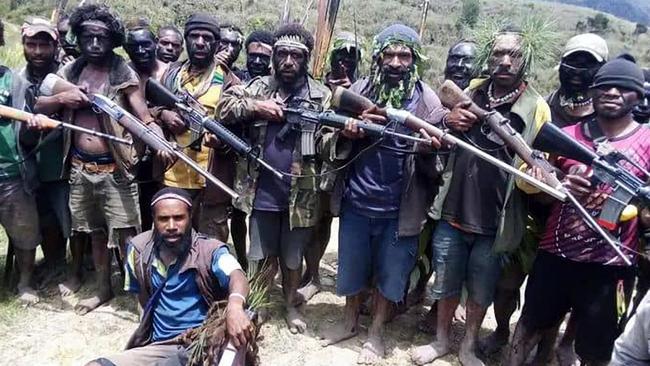
Enga Province’s economy – and that of PNG – has been hit severely by the forced closure of the Porgera goldmine more than three years ago, when the Marape national government insisted on PNG taking ownership control. Its output averaged 12 per cent of total PNG exports for the previous 20 years and it was employing 3500 Papua New Guineans when it closed.
The mine will reopen – perhaps later this year – with PNG interests now taking 51 per cent and the rest divided between Canadian operator Barrick and Chinese miner Zijin.
But this lengthy loss of work for young Engans compounds the sense of many that the “new world” of the common law, parliament and the modern economy holds little for them, as they turn back towards ancient and sometimes violent cultural roots, with clear-cut boundaries, goals and enemies.
The disciplined services of PNG, short in numbers, resources and training, struggle to fulfil their briefs while avoiding the natural inclination to assume tribal identities for themselves.
Major General Mark Goina, the commander of the PNG Defence Force – whose soldiers are on duty alongside police in the Highlands – recently was suspended for three months during an inquiry into the deaths of two soldiers during a disastrous training exercise.
The prospect looms on the horizon that the PNGDF may again also be sent, in extremis, to Bougainville – 98 per cent of whose people voted for independence, with an 87 per cent turnout, at a referendum in 2019. Little progress has been made towards accommodating that clear wish, four years later.
Plans announced on Thursday by Marape for a new joint police-army anti-tribal-warfare force smack of desperation and would seem doomed – especially given the traditional rivalry between the services – without lengthy, intense training.
Peter Ipatas, the veteran governor of Enga, the platform for many of today’s tribal battles, told The Australian’s Ben Packham this week he wanted the national government to appeal for Australian police support “to work alongside our policemen and women”. However, there is little to no likelihood of this happening.
In 2004 a billion-dollar Enhanced Cooperation Program brought 150 Australian Federal Police officers to PNG, their immunity from prosecution having been legislated.
But the following year Luther Wenge, then governor of Morobe Province, claimed this was in breach of the PNG constitution and a five-judge bench of the Supreme Court agreed unanimously.
This is frustrating for the many Papua New Guineans who, like Ipatas, would welcome more muscular, hands-on support from Australians.
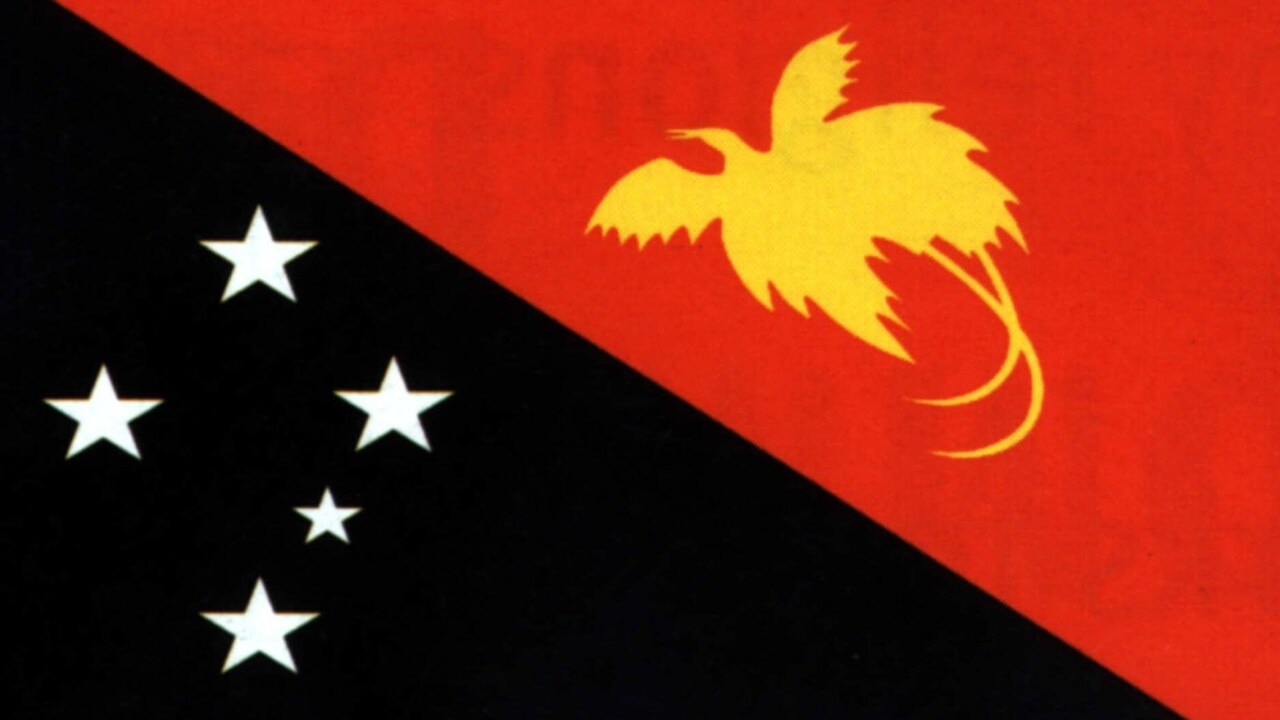
While I was on a visit back to Port Moresby – my home for a decade – several years ago, a gang broke out of Bomana jail, gained some guns, and was robbing a bank on Waigani Drive.
A police car happened to be passing and a shootout ensued. Among the police was an Australian officer on a training assignment whose PNG counterpart was being pinned down by fire. The Australian rescued him by shooting one of the gangsters.
The Australian high commission swiftly launched an apology, aiming at damage limitation. My PNG friends were perplexed because the Australian policeman had become an instant hero on Port Moresby’s streets.
But if Canberra can’t readily quell tribal conflicts, might the US? A new defence pact will help upgrade military bases in Lae and Manus Island, which will provide access to American military personnel, but they will stay well clear of domestic disturbances.
What of China, which already has signed a comprehensive strategic partnership, including for police co-operation, with PNG’s neighbouring Solomon Islands?
China has lent PNG billions of kina – which mostly have been spent on building infrastructure by Chinese state-owned firms, using Chinese workers – and has sought to build influence through a broad range of well-publicised investments. But any deployment of security personnel, even for the kind of evacuations of Chinese citizens fictionalised in China’s Rambo-esque Wolf Warrior films, would be strongly resisted in PNG and constrained by the same constitutional barrier as for Australian police.
So tribal fighting is back, big time, like a giant fist reaching in from the past – or more worryingly, a foretaste of a chaotic future – to grab PNG by the neck, instructing its leaders of the forces unleashed by their own serial failures.
Rowan Callick is an industry fellow at Griffith Uni’s Asia Institute.


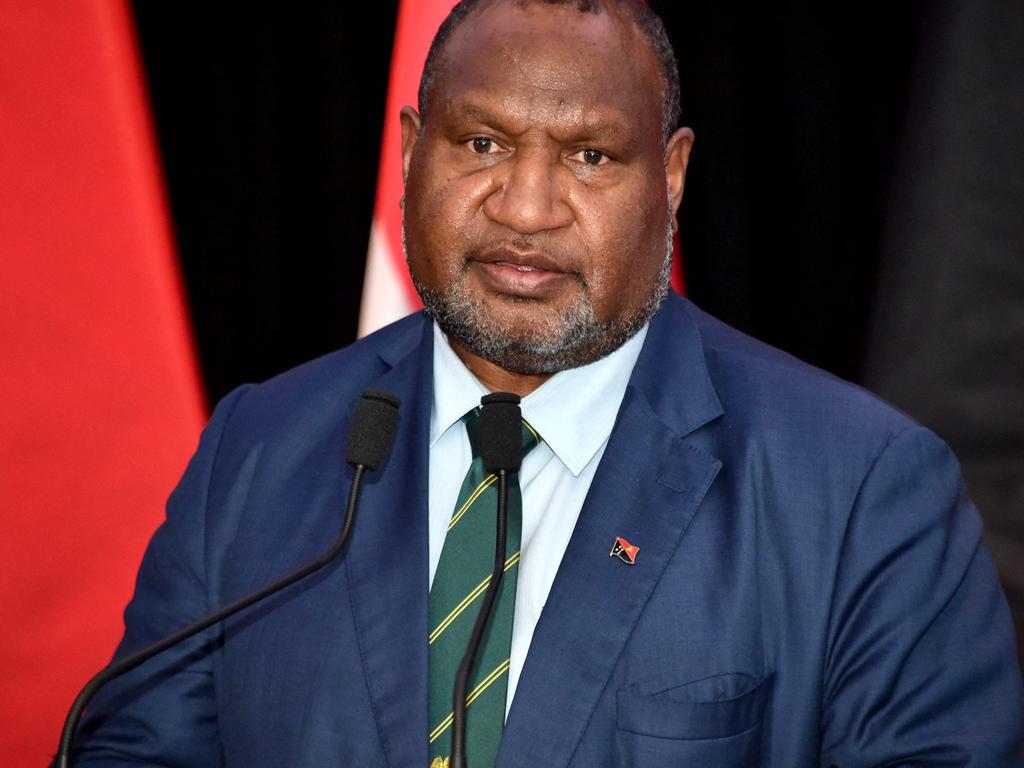
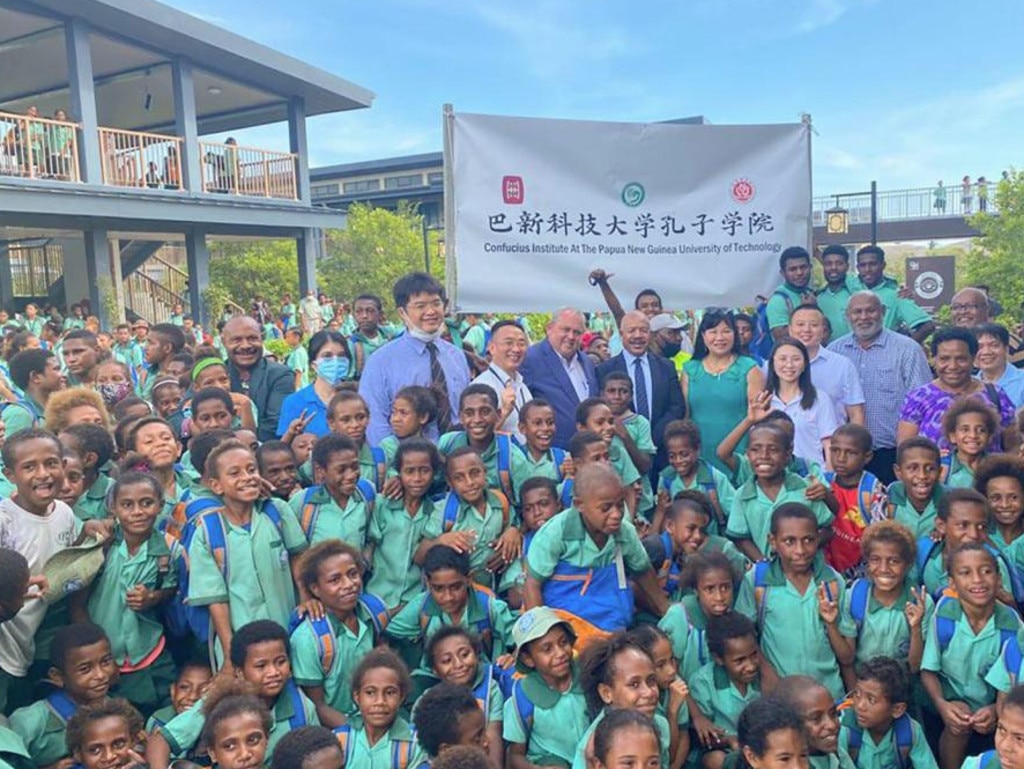

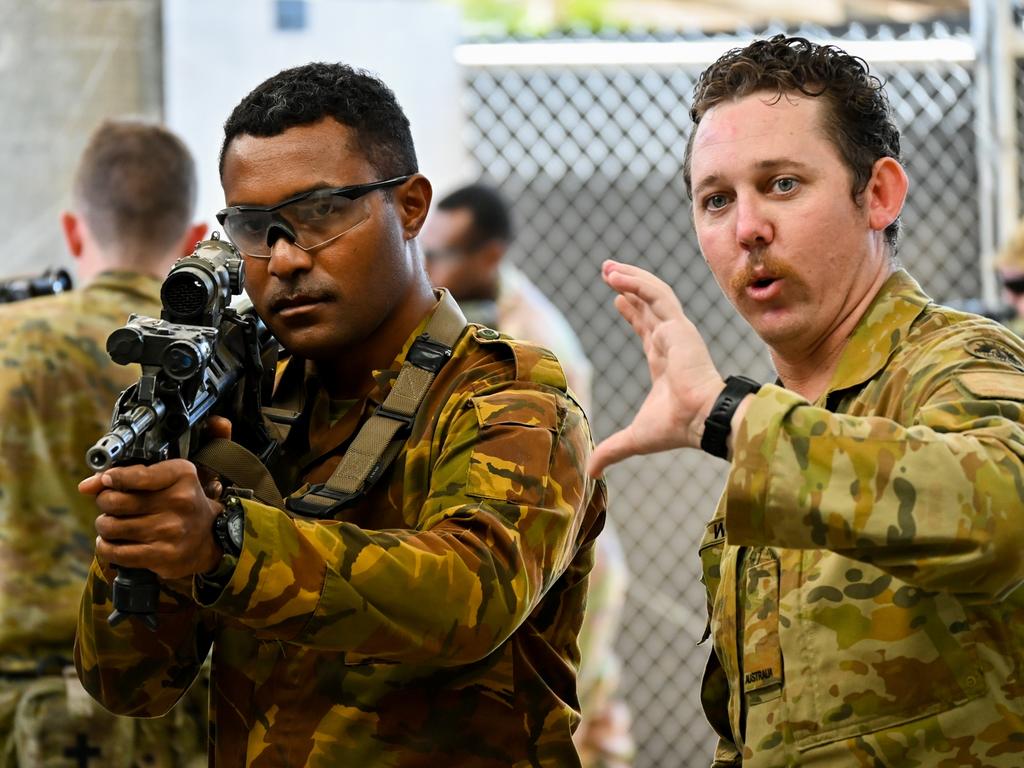


To join the conversation, please log in. Don't have an account? Register
Join the conversation, you are commenting as Logout